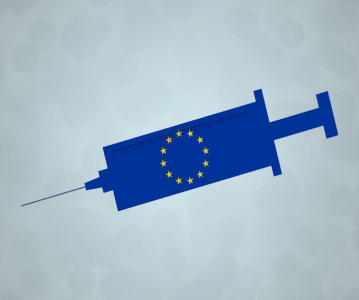EU FMD - time is running out!

Companies that have left it too late to implement their own solution will have to rely on support from providers, whose resources are already in high demand as the deadline approaches.
With only 3 months to go until the EU FMD comes into force, what can companies do now to ensure they are compliance ready? Experts from across the industry give their advice.
Brian Daleiden, Vice President of Industry Marketing, TraceLink
"The 9 November marks the 3-month countdown to the EU Falsified Medicines Directive (FMD) compliance deadline. EU FMD applies to all countries in the European Economic Area (EEA) with the exception of Italy and Greece, who have an additional 6 years to transition from their existing serialisation regulations to those of EU FMD. The EMVO (European Medicines Verification Organisation), which operates the central EU Hub to which manufacturers will report their serialisation data, and the NMVOs (National Medicines Verification Organisations), who receive that data against which products are verified, are working to the deadline.
"Marketing Authorisation Holders (MAHs) alone are accountable for on-boarding and connecting to the EMVO, therefore their serialisation solution must also provide for data exchange with trade partners such as contract manufacturers. The EU Hub has been live for some time, with a growing number of MAHs now fully operational to transmit their serialisation data.
"Of the 30 national systems that should be in place, there are three at risk of not being ready by February. For MAHs however, lack of national system readiness does not alter their legal obligation to serialise their products and connect to the EU Hub by the deadline. Even if the national system of a country to which they ship products is not yet operational, the product data must still be uploaded to the EU Hub once the national system is live.
"MAHs that fail to serialise their packs will be in breach of the law. If a pack is released after the deadline, it must bear safety features. The legal responsibility lies on the MAH: if an audit uncovers that a pharmacist has dispensed a pack that was manufactured after February 2019 without safety features, the repercussions will fall on the MAH, not the pharmacist. The pharmacist’s accountability is to verify and decommission all packs bearing safety features.
"The ultimate financial penalty is the rejection of your stock - if wholesalers and/or pharmacists can’t verify and decommission it, by law they can’t dispense it.
"With these implications in mind and with such limited time left, it is essential that businesses prioritise the on-boarding of partners, complete the EMVO On-boarding Partner Portal (OBP Portal) process and related NMVO agreements, connect to and verify integrations with the EU Hub, and validate their end-to-end EU compliance solutions.
"The on-boarding process, internal design of all technical and operational touchpoints needed for EU compliance, and connecting IT systems to the EU Hub across multiple data transactions can all be challenging; businesses that aren’t using a pre-validated solution have a lot of work to do in a very short timeframe. Businesses that have opted for point-to-point connections with contract manufacturing organisations (CMOs) and third-party logistics providers (3PLs) have created additional layers of complexity and are at risk of failing to meet the deadline.
"As companies make decisions that will dictate their readiness for the February 2019 FMD deadline, they will have to rely on support from providers that can deliver cost-effective, turnkey solutions. A network-tenant approach where a prevalidated solution connects manufacturers with their supply chain partners and enables the data exchange required for compliance is the only viable option for any business that isn’t already well underway in implementing a solution."
Erik Haeffler, Vice President of Manufacturing Services, Recipharm
"The deadline for serialization compliance is fast approaching. Three months is a very short period of time given the scale of the changes that are required to implement a suitable solution. Ideally, contract manufacturing organizations (CMOs) will now have finished testing and validating solutions to maintain a continuous supply.For some, however, this is not the case and those that have not completed preparations need to move very quickly to avoid a halt in production while they finalize implementation.
Companies that have been slow in their preparations will need to abandon the idea of customization and stick to standardized solutions. Partnering with companies that offer a specialized contract packaging service can also help to speed up the process; negotiations for onboarding, however, will take time and should be started immediately."
Dexter Tjoa, Director Corporate Strategy, Tjoapack
"For companies yet to install the necessary equipment and ensure suitable data storage systems are in place, there is simply not enough time left to do this alone. For companies that are unprepared, the only option to ensure compliance ahead of the deadline is to look for suitable partners to collaborate with and outsource any serialization requirements.
"However, it is important that companies do not underestimate the timeframes associated with outsourcing, the on-boarding process can take months and must be started immediately. In short, this is the last chance for companies to prepare for serialization before the EU FMD comes into force, so selecting appropriate and trustworthy partners to ensure compliance should be a priority."
Daniel Tedham, Managing Director, Wasdell Manufacturing a division of the Wasdell Group
With only 3 months left before the EU FMD deadline, the lack of readiness across the industry remains a concern. Many companies have simply left it too late to implement their own solution are now looking to outsource to experienced partners with tried and tested serialisation capabilities. Now is the time to act, as these partners’ resources are already in high demand as the deadline approaches.
For those that are further along in their preparations, they need to start working on the areas beyond the installation of new equipment and software that serialisation affects. Supply chain partners should now be on-boarded and a connection with the EMVO should be in place. Businesses should now be at the point where they are validating solutions and training teams on the new processes need to be introduced across entire businesses. Pilot schemes and any end-to-end testing should also be underway with a view to completing them well before the February deadline to ensure a seamless transition post-February 2019.
Related News
-
News Patients vs Pharma – who will the Inflation Reduction Act affect the most?
The Inflation Reduction Act brought in by the Biden administration in 2022 aims to give better and more equitable access to healthcare in the USA. However, pharma companies are now concerned about the other potential costs of such legislation. -
News CPHI Podcast Series: What does the changing US Pharma market mean for industry and patients alike?
In this week's episode of the CPHI Podcast Series Lucy Chard, Digital Editor for CPHI Online is joined by James Manser to discuss the political and market changes in the US pharma field. -
News CPHI Barcelona Annual Report illuminates industry trends for 2024
The CPHI Annual Survey comes into it’s 7th year to report on the predicted trends for 2024. Over 250 pharma executives were asked 35 questions, with their answers informing the industry landscape for the next year, spanning all major pharma marke... -
News Which 10 drugs are open to price negotiation with Medicare in the USA?
The Centres for Medicare & Medicaid Services, under the Biden administration in the USA, has released a list of the 10 drugs that will be open to price negotiations as part of the new legislation under the Inflation Reduction Act (IRA). -
News EU Medical Devices Regulation causes unintended disappearances of medical devices for children, doctors state
Doctor groups and associations have appealed to the EU to correct the EU Medical Devices Regulation law that may cause unintended shortages of essential drug and medical devices for children and rare disease patients. -
News 10 Major Drug Approvals So Far in 2023
Last year, 37 novel drugs were approved by the FDA, this was a high number for such a category, and covered many fields including oncology, demonstrating how promising further research is, and how it is only continuing to build. To date, there are alre... -
News Detecting Alzheimer's disease with a simple lateral flow test
A novel rapid diagnostic test for early-stage Alzheimer's disease has been developed using a biomarker binder from Aptamer Group along with technology from Neuro-Bio, the neurodegenerative disease experts. -
News CPHI Podcast Series: outsourcing and manufacturing trends
Listen to the CPHI Podcast Series this June to hear Gil Roth of the PBOA speak with Digital Editor Lucy Chard about the biggest trends and topics to watch in pharma outsourcing and manufacturing at the minute.
Position your company at the heart of the global Pharma industry with a CPHI Online membership
-
Your products and solutions visible to thousands of visitors within the largest Pharma marketplace
-
Generate high-quality, engaged leads for your business, all year round
-
Promote your business as the industry’s thought-leader by hosting your reports, brochures and videos within your profile
-
Your company’s profile boosted at all participating CPHI events
-
An easy-to-use platform with a detailed dashboard showing your leads and performance







